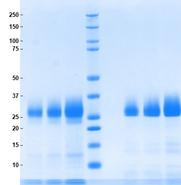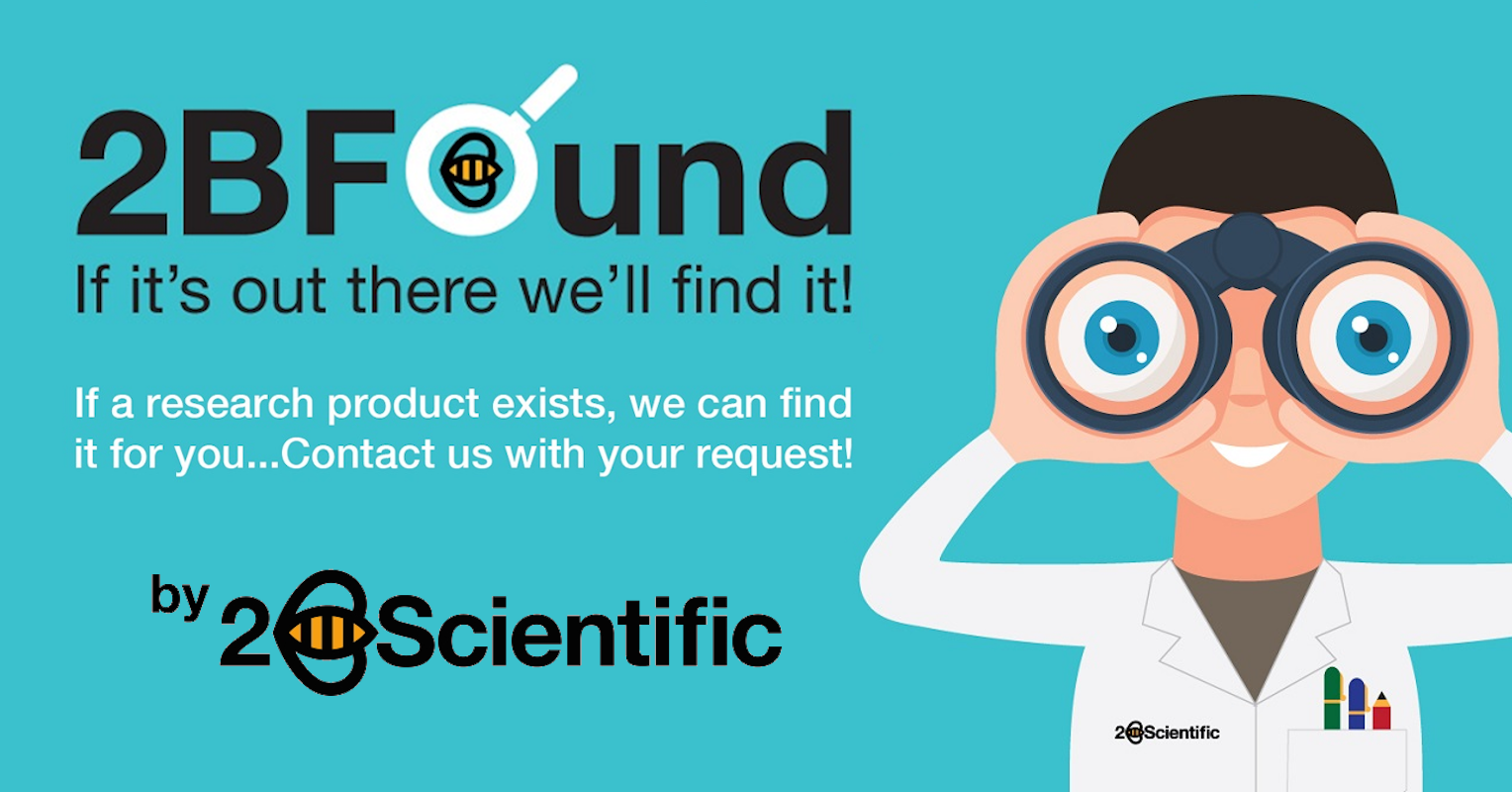
Azurocidin
Product Sizes
0.1 mg
16-14-012621-0.1MG
1 mg
16-14-012621-1MG
About this Product
- SKU:
- 16-14-012621
- Additional Names:
- Antimicrobial, Inflammation, Alzheimer's, In Vitro Diagnostic|CAP37, Cationic Protein 37, AZU1 , Heparin-binding protein
- Buffer:
- Salt-free lyophilized solid.
- CE/IVD:
- RUO
- Extra Details:
- Azurocidin (AZU1), encoded on chromosome 19p13.3 within a gene cluster alongside proteinase 3 and neutrophil elastase, is a glycoprotein belonging to the serine protease family but lacking enzymatic activity due to mutations in its catalytic triad (His41Ser, Ser175Gly). This pseudoenzyme exerts multifunctional roles in innate immunity, primarily through its N-terminal hydrophobic pocket (residues 20-44), which binds Gram-negative bacterial lipid A for antimicrobial activity, and a cationic domain mediating heparin interactions. As a key inflammatory mediator, azurocidin induces endothelial permeability via paracrine signaling, facilitating leukocyte extravasation by creating intercellular gaps, while also acting as a monocyte chemoattractant via formyl-peptide receptors and B Beta2-integrins. Clinically, azurocidin (heparin-binding protein, HBP) serves as a biomarker for sepsis severity, with plasma levels >45 ng/mL predicting septic shock and 30-day mortality. Elevated HBP correlates with COVID-19 progression, distinguishing critical cases (69 ng/mL) from moderate infections, and differentiates sepsis from autoimmune conditions like adult-onset Still's disease. Its role in exacerbating endothelial leakage and cytokine storms positions it as a therapeutic target, with investigational approaches including monoclonal antibodies and synthetic peptides to inhibit HBP-mediated vascular dysfunction. Additionally, azurocidin's endotoxin-neutralizing properties and monocyte activation capabilities underscore its dual role in host defense and pathological inflammation.
- Formulation:
- Salt-free lyophilized solid.
- Molecular Weight:
- 37,000 Da
- Physical State:
- Lyophilized
- Purity:
- ≥95%
- Purification:
- Liquid Chromatography Methods
- Shipping Conditions:
- Blue Ice
- Source:
- Neutrophils shown to be non reactive for HBsAg, anti-HCV, anti-HBc, and negative for anti-HIV 1 & 2 by FDA approved tests.
- Storage Conditions:
- Please refer to datasheet
- Supplier:
- Athens Bioscience, Inc.
- Type:
- Proteins, Peptides, Small Molecules & Other Biomolecules: Native


